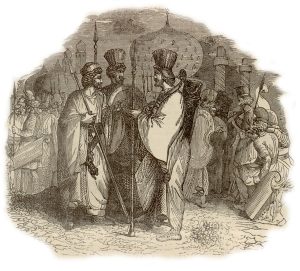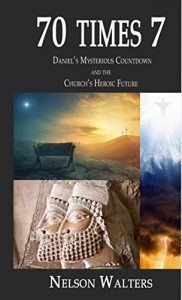 William Struse responds to Nelson Walters’ Reasonable Doubt
William Struse responds to Nelson Walters’ Reasonable Doubt
What if I told you that nearly everything you believe about the Bible’s future prophecies is somehow influenced by an assumption originating in the historical details of Ezra and Nehemiah’s place in the 2nd temple era?
What many don’t know is that there is a little known and less understood fact of Biblical history, that is the basis for much of what you and I believe about the 7 year tribulation, the rapture, the 2nd coming of Christ, the identity of the anti-Christ, and most of the events described in the book of Revelation. What I’m talking about is the chronological assumption regarding Ezra and Nehemiah’s place in the 2nd temple era as it relates to an unnamed Persian king who the Biblical record only identifies by the Persian title “Artaxerxes”.
You see, there are multiple “Artaxerxes” in the Bible and 99% of teachers and scholars who write about Daniel 9 and the 70 “Weeks” date the starting point of the prophecy from a “commandment to restore and build Jerusalem” which they believe was given during the reign of the Persian king “Artaxerxes” Longimanus. This assumption, in nearly every case, is given without a single Biblical chronological fact from which a reader might attempt to verify the claim.
This is important because nearly every event described in the book of Revelation is organized within a framework based at least in part on the 70 Weeks prophecy of Daniel 9. Every interpretation of Daniel 9 and the 70 “Weeks” in turn finds its basis in a “Commandment to restore and build Jerusalem” which is set during the era of Ezra, Nehemiah, and a Persian king who bares only the title “Artaxerxes”. Despite all the incredible theological weight resting upon this 2nd temple era chronology, it is one of the best kept secrets of Bible prophecy. And for good reason as you’ll soon understand.
Unfortunately, most of today’s scholars, teachers, and writers on the subject of Bible prophecy are either unaware of the subject, unwilling to deal with the implications, or they are simply depending upon the ignorance of their readers to give them a pass. Frankly, the few who are aware of the challenges this subject poses to our understanding of Bible prophecy are loath to Continue reading

